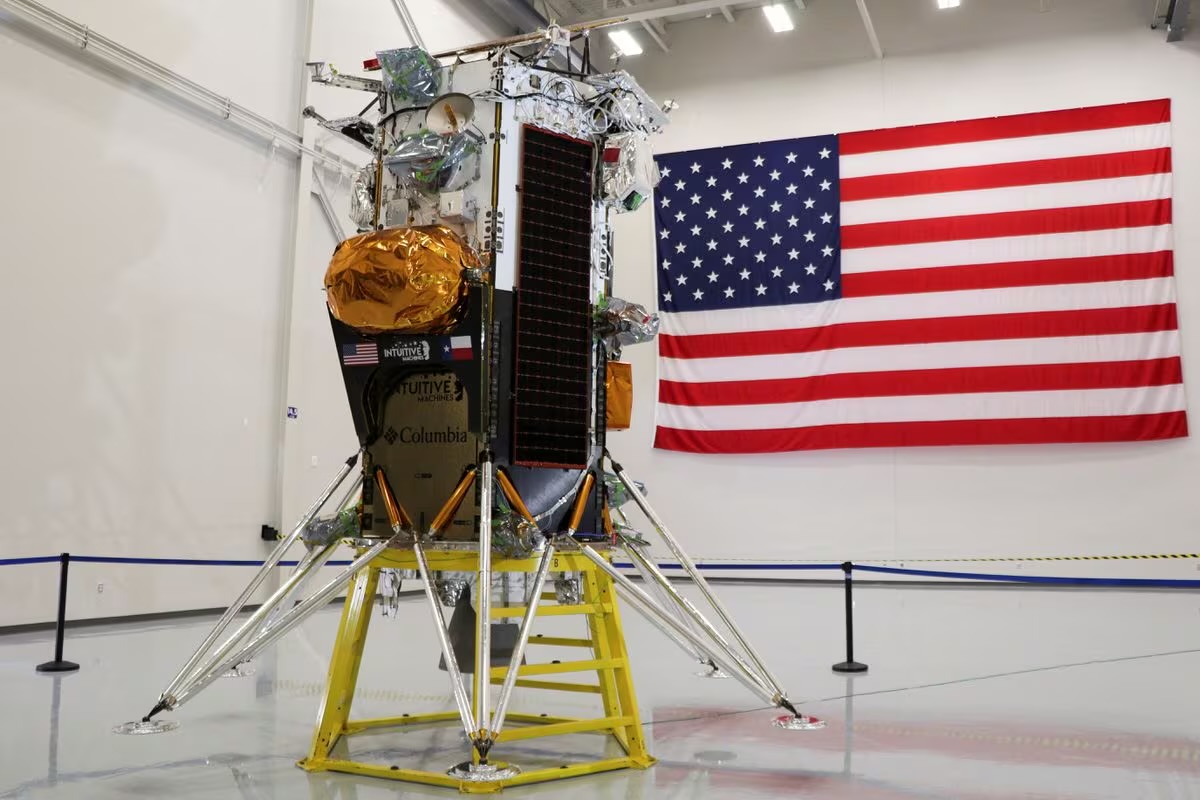Private US moon lander set for launch half century after last Apollo lunar mission
A robotic moon lander built by Houston-based aerospace company Intuitive Machines was set for launch on a NASA mission to conduct the first US lunar touchdown in more than a half century and the first by a privately owned vehicle
The company's Nova-C lander, dubbed Odysseus, was due for liftoff shortly before 1 a.m. EST (0600 GMT) atop a SpaceX Falcon 9 rocket from NASA's Kennedy Space Center in Cape Canaveral, Florida.
Forecasts called for a 95% chance of favorable weather conditions.
The launch comes a month after the lunar lander of another private firm, Astrobotic Technology, suffered a propulsion system leak on its way to the moon shortly after being placed in orbit on Jan. 8 by a United Launch Alliance (ULA) Vulcan rocket making its debut flight.
The failure of Astrobotic's Peregrine lander, which was also on a NASA mission, marked the third time a private company had been unable to achieve a "soft landing" on the lunar surface, following ill-fated efforts by companies from Israel and Japan.
Those mishaps illustrate the risks NASA faces in leaning more heavily on the commercial sector than it had in the past to realize its spaceflight goals.
Plans call for Intuitive Machines' Nova-C vehicle, a hexagonal cylinder with four legs, to reach its destination after about a weeklong flight as early as Feb. 22 for a landing at crater Malapert A near the moon's south pole.
If successful, the flight, dubbed IM-1, would represent the first controlled descent to the lunar surface by a U.S. spacecraft since the final Apollo crewed moon mission in 1972, and the first by a private company.
The feat also would mark the first journey to the lunar surface under NASA's Artemis moon program, as the U.S. races to return astronauts to Earth's natural satellite before China lands its own crewed spacecraft there.
IM-1 is the latest test of NASA's strategy of paying for the use of spacecraft built and owned by Elon Musk's SpaceX and other private companies to slash the cost of the Artemis missions, envisioned as precursors to human exploration of Mars.
(Reuters)





